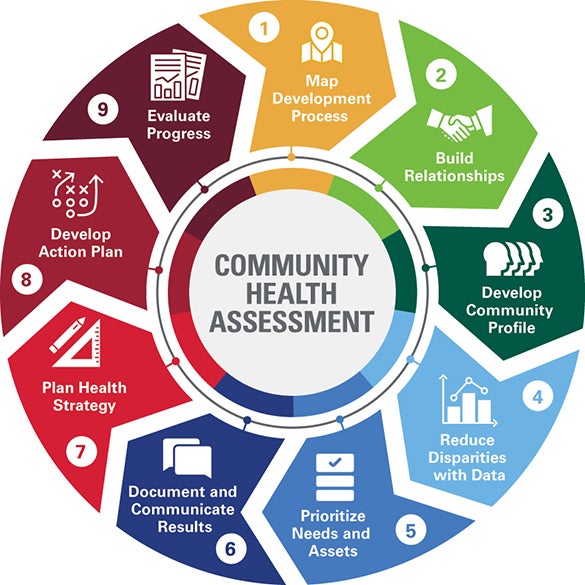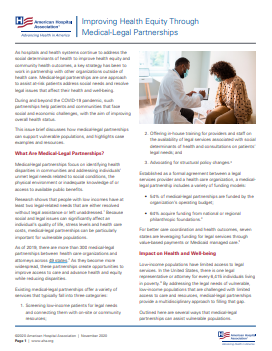Guides and Tools
Find our guides, case studies and toolkits in this library of resources.
GHPC Podcast Series
2025
This four-part podcast series highlights the work health care leaders across the country are leading to improve the lives of their patients and communities.
Community Health and Environment Reports
2025
Offering key takeaways from each of the Community Health and Environment’s seven workshops, the initiative’s snapshot reports will shed light on how hospitals, health systems and other health care organizations play a vital role in supporting environment-resilient communities.
Healthier Together" Report
2024
The Hospital Community Collaborative’s "Healthier Together" report breaks down the initiative’s impact on community health between 2018-2023.
Bridging the Sectors Compendium
2024
This compendium of resources provides tools, assessments and evidence-based examples developed by leading organizations across the U.S. to help build and sustain cross-sector partnerships that improve community health.
Community Health Assessment Supplements
2024
Learn how to best involve older adults, caregivers and people with disabilities in your community assessment processes by reading these supplements.
Community Health Assessment Toolkit
2023
This updated toolkit provides a nine-step guide for hospitals and health systems to collaborate with their communities and strategic partners to conduct a community health assessment (CHA) and meet community health needs assessment (CHNA) requirements.
Community Investment: Moving from Transactions to Transformation
2022
Hospitals and health systems are working to address the upstream, root causes of health disparities by making investments to improve the health and well-being of communities for the long-term. This blog explores real-world examples from leaders in the field and insights on how to approach this work.
Reducing Disparities in Health Outcomes Through Medical-Legal Partnerships
2020
Medical-legal partnerships are one approach to help at-risk patients address social needs and resolve legal issues that affect their health and well-being. This issue brief discusses how medical-legal partnerships can support patients and their families, and highlights case examples and resources.








